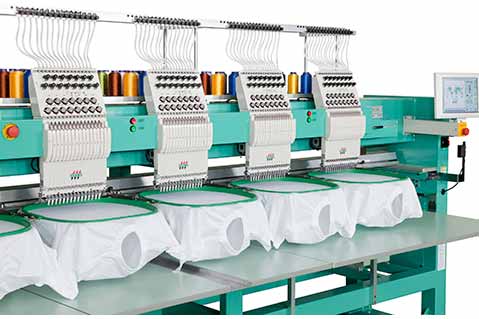Product Hub June 13, 2017
Make Sure You’re Getting a Good Deal on Equipment
You can save money by purchasing used equipment, but do your research first.
Bill Garvin, owner of Florida-based embroidery machine repair company BG Tech Services, explains the benefits of buying used embroidery equipment and a few things to consider before taking the plunge.

Q: What are the benefits of buying used?
Bill Garvin: The main reason is simply price, and there are always good deals to be had with a good machine. Just make sure you confirm its condition prior to purchase. Many clients will pay for a certified technician, like myself, to check out a machine and evaluate its condition and worth before buying. Having that peace of mind is invaluable.
Q: What are the drawbacks?
BG: A used machine without a warranty could cost more to repair than buying new would, especially if you’re dealing with electrical issues. Another concern a buyer should have is that used equipment has no support or training and is sold as is, meaning you bought it and you own it, so figure it out.
Q: What should a buyer look at before purchasing a used machine?
BG: A lot of times just looking at the overall condition is a good start. Ask for pictures from all sides and close-ups. Normally, it’s easy to tell if it was taken care of, or heavily used and abused. Do your homework on brand and age. Some parts may no longer be made or available, depending on how old the equipment is. Also, confirm what comes with the machine. For example, does it have a cap driver and all the frames? These can be very expensive to replace.
Q: What should you do to make sure your used machine is in top condition and ready to use after purchase?
BG: The best advice is service, service, service. For example, if the machine sat unused for too long, it’ll probably be dry and need to be greased and oiled. If you don’t grease it, the machine could run for a few days, and then start giving overload and main shaft errors from seizing up. Depending on the machine’s age, inexpensive parts, like rubber cushions and spacers, may be worn out and cause components to operate incorrectly.
Q: Is there anything special you should do to prepare your production floor before or after the used machine is installed?
BG: Always confirm the space you have for the machine before buying. Ask for specific dimensions. Keep in mind that machines should never be placed against a wall. Operators and technicians should have clear access to get all the way around a machine for simple things like threading, cleaning and servicing. Also, remember that machines were never designed to run on their wheels. Those are for moving equipment only, never production, so level, raise and lock the wheels when the machine is in place.
Q: About how long can a well-maintained embroidery machine last?
BG: The life expectancy on most well-maintained machines in the industry is 15 years. I work on machines that still run great and are 20 years old or more. What I tell clients is simply this: Machines are good for as long as parts are still made for them. But the main reason for upgrading is electronics. Technology changes and improves. Most of us aren’t watching 15-year-old televisions.

Product Hub
Find the latest in quality products, must-know trends and fresh ideas for upcoming end-buyer campaigns.
